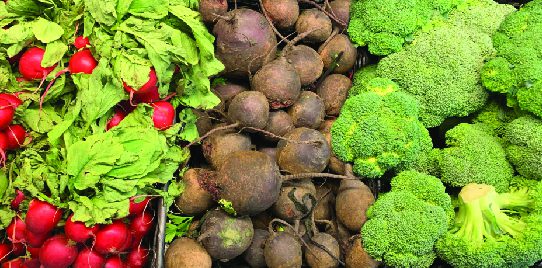Category: Network
Meet Katie Malarkey – a student researching agricultural plastics
Katie Malarkey is a PhD student in Sustainability at the Rochester Institute of Technology, researching U.S. agricultural plastic usage. With 5 years and counting on this topic, she’s ready to […]
Tackling Food Waste in the Hospitality and Tourism Industry
Every year, vacation destinations generate significant amounts of food waste, leading to both environmental and economic concerns. The hospitality sector, particularly hotels and resorts, often faces challenges in managing surplus […]
Climate Leadership in Chicago’s Food Retail Sector
Students in the Spring 2024 “Design for Climate Leadership: Food+Waste” workshop at Illinois Institute of Technology volunteer at the Greater Chicago Food Depository. Over the past 12 months, Illinois Institute […]
Co-Designing a Process for Food Donation Programs
The U.S. retail sector generated approximately 4.99 million tons of surplus food in 2022, sending 34.5% to the landfill or incineration, and donating only 19.5% (ReFED, 2023). Retailers recognize that […]
Beyond Collaboration: RIT Visits UC Davis Campus
By Diana Rodriguez Alberto Earlier this year when planning for our trip to Sacramento for the 2024 North American Biochar conference, Tom and I saw the perfect opportunity to visit […]
AU Award Winners for Wasted Food Education
Hannah Jardine (fifth from the left) is presented the Staff & Faculty Collaboration Award by AU executive cabinet members. RECIPES Fellow & AU professorial lecturer Kristine Beran and the AU Center for […]
Bite Sized Nutrition Banter
Amelia Rowniewski, a first-year public health major at American University (AU), delivered a presentation titled ‘Bite Sized Nutrition Banter’ at the Mathias Student Research Conference on April 6th. The research […]
Closing the Loop: Food Waste Prevention Pathways for Chicago
In the spring of 2023, RECIPES researchers Weslynne Ashton, Maura Shea, and Azra Sungu ran a workshop at Illinois Tech with stakeholders in food waste prevention in Chicago to rethink […]
NEW REPORT: Household food waste trending upwards in the United States
Households waste more food than any other supply chain segments in the US – about 66.5 million tons of waste! US officials recognized this problem when they committed to halving food loss and waste by 2030 under the Obama administration in 2015.
Could little snacks reduce food waste?
PEELS (Packaging Evolving and Encasing Little Snacks). Using a convergence framework, students Claire and Ariella brought together different backgrounds (sustainability science and industrial design) to explore the potential of a biopolymer made from fruit and vegetable peels as a food packaging alternative to plastic.
